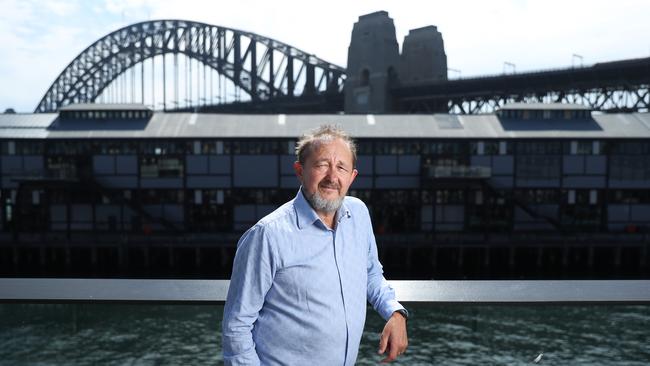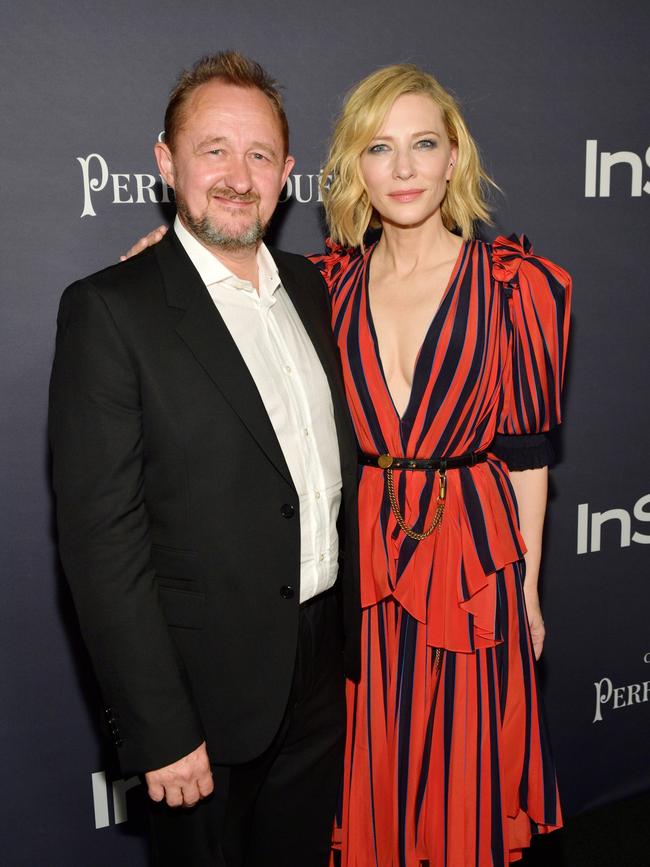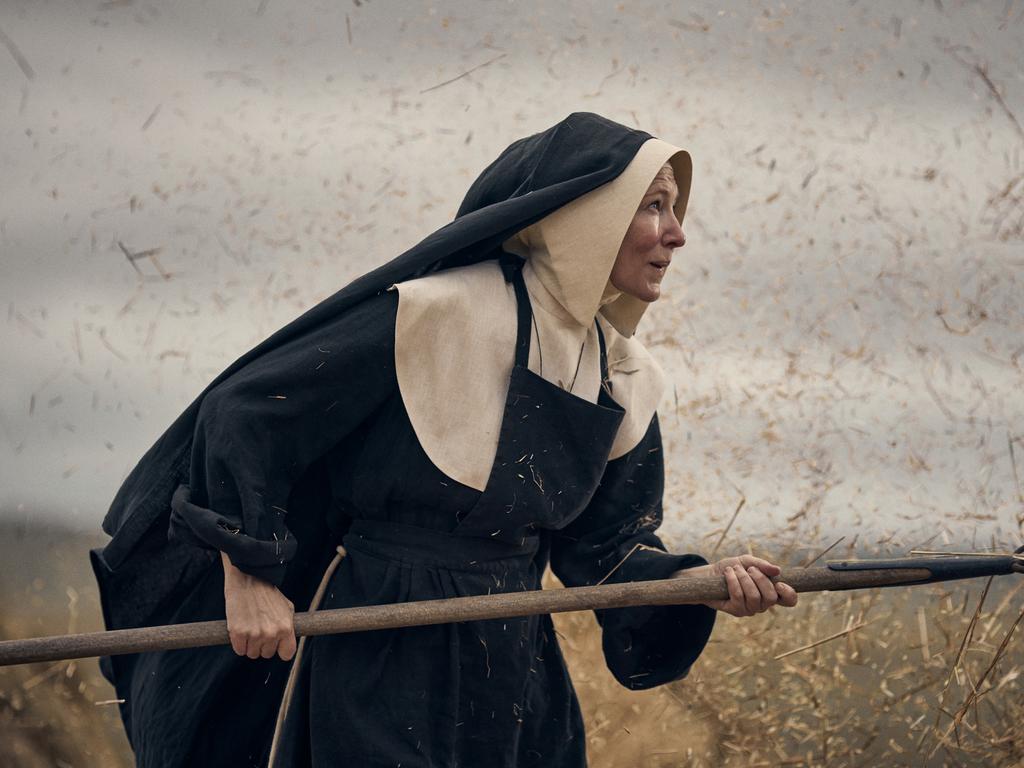How Andrew Upton was lured back to Sydney ... and theatre
Seven years after Andrew Upton and his wife Cate Blanchett shifted their family from Sydney to the UK, he has returned to theatre to a doozy.

It is not overstating the matter to describe Andrew Upton as Australia’s foremost adapter of Chekhov. You need look no further than his adaptations for the Sydney Theatre Company (STC) of The Cherry Orchard, Uncle Vanya, The Present and The Three Sisters – three of them touring America and the UK – to appreciate the man clearly has a gift for adapting the Russian playwright’s seminal rhythm and tone.
There is one Chekhov play, however, that has always confounded him. The Seagull. In fact Upton goes so far as to admit he is afraid of adapting it.
“I love The Seagull but I’m quite scared of it,” Upton says. “There are the three big Chekhovs: The Cherry Orchard, Uncle Vanya and The Three Sisters, all have a very refined four-act structure where the third act does a particular thing that’s just wonderful. But when Kip brought up The Seagull in 2018 (Kip Williams, STC artistic director who directed Upton’s 2017 adaptation of The Three Sisters) I said, ‘I respect the inherent structural musicality of Chekhov so much (but) there are some things in The Seagull that aren’t quite as deftly handled’.”
Now, seven years after Upton and his wife, dual Oscar-winning actor and producer Cate Blanchett shifted their family from Sydney to the UK and Upton’s professional focus from theatre to film and television, he has returned to theatre for the first time, to adapt that very play.
But first a quick recap of those past seven years, as it seems Upton has quietly slipped into the background since successfully running the STC for five years as co-artistic director with Blanchett (2008-12), followed by two years on his own. During that time he directed and adapted numerous works, many of them invited to tour abroad including his adaptation and direction of Bulgakov’s The White Guard for London’s National Theatre and Jean Genet’s The Maids to New York.
The couple left Australia in 2016, moving to East Sussex with their four children Dashiell, now 21, Roman, 19, Ignatius, 15, and eight-year-old Edith. Given Upton is half-British the family has been able to live there long-term, a move that has enabled a better work-life balance.
“That hemisphere is obviously good for Cate being flexible around her work commitments which involve a lot more travel than my career, we’ve still got two kids at school and it’s working very well for us, our family life, work life, for now. It’s been a really good move but of course I miss Australia.”

In 2000 Blanchett and Upton co-founded independent film and TV production company Dirty Films and in 2020 he executive produced Stateless, the six-part series for Netflix and the ABC starring Blanchett and Yvonne Strahovski that won 13 AACTA Awards; while he and Blanchett produced Warwick Thornton’s 2023 film The New Boy also starring Blanchett that premiered at the Cannes Film Festival. Upton has also produced Christos Nikou’s 2023 feature Fingernails that premiered this month on Apple TV featuring Jessie Buckley, Riz Ahmed and Jeremy Allen White; while Blanchett and Upton executive produced Noora Niasari’s debut feature Shayda which premiered (and won the audience award) at this year’s Sundance Film Festival.
Moving into the world of television, in particular, was a canny step given the explosion of streaming content that was yet to eventuate. While the couple was able to transfer the producorial skills they’d developed running a theatre company – Upton highlights developing and maintaining creative relationships and creating good workspaces for actors, directors and writers to make good films as examples – it was nevertheless a learning curve adapting to the different development processes and rhythms that comes with producing film and television.
“With theatre you can bring out a new production, program it and it’s all done within 18 months. Cate and I really enjoyed that high turnover, it’s very satisfying and challenging and keeps you engaged,” Upton says.
Feature films and TV on the other hand are typically much more drawn out, with a project like Fingernails taking up to three years to produce. “They’re all three very different, so getting our heads around the development and production processes, the timing and rhythm of them, has really been the hardest bit.”
When Williams “matchmade” Upton with Australian theatre director Imara Savage (who directed Saint Joan for the STC in 2018, starring Sarah Snook) so she could explain her contemporary interpretation of The Seagull, his fear of the play abated, and he was encouraged to return to the world of theatre once more.
First performed in 1896, Chekhov’s The Seagull is a darkly funny, moving drama that follows the glamorous but ageing diva Irina Arkadina (Sigrid Thornton) visiting a lakeside country estate with her much younger lover, successful novelist Boris Trigorin (Toby Schmitz). A love triangle ensues as Arkadina’s hapless son Constantine (Harry Greenwood) — a would-be playwright who is desperate to win the affections of young theatre ingenue and neighbour Nina (STC newcomer Mabel Li) stages a play starring Nina — who in turn falls for Trigorin. Various other satisfyingly rendered characters flesh out the story that touches on the generation gap and the changing of the guard within an artistic community so desperately controlled by the “fabulous adorable monster” that is Arkadina.
“Imara and I had a really great email exchange, then Zoom conversation, about what she would do with The Seagull and what she felt was Nina’s journey (the play is typically directed with Arkadina at its centre). There’s often a kind of madness to it all but she felt there was a real solidity. There are lines in there such as ‘I’ve learnt now that as an actor it’s about endurance’, which is a classical Chekhov notion that the real work is sticking it out and I hadn’t seen that in the play. It was a really great take and allowed me to think, ‘OK, that helps me’.”
Through Savage’s interpretation and Upton’s adaptation we find a contemporary production set loosely in Australia at a time that is “just at the edge of memory” in a somewhat bleak, faded aristo country house where the mood is darkly comic, underpinned by a muted sense of change and uncertain future as matters of the heart become entangled and messy. There are frequent references to Hamlet, including direct quotes (“the most famous play-within-a-play is Hamlet, and he is heavily referenced in Chekhov’s original Russian version of The Seagull, Constantine is quite clearly a Hamlet,”) while Upton promises “some late 1970s New York City punk”.
“It’s a kind of fabulous soap opera set in an artistic community that’s fading and reached the end of its time and due a change,” says Upton. “What unfolds is a misadventure in love and a broken heart. But it remains a very funny play because the capers they get up to at times verge on the farcical.”
Working with Savage and adapting The Seagull Upton is struck by the enduring, contemporary themes running through it.
“It’s a story about a family suffering from generational change which is kind of always relevant, but in this instance it’s also that question around who we make art for, its relevance, where art belongs,” he says. “It’s about a young couple who have grown up in an artistic environment who have their own completely different aesthetic and a completely different way they want to say it. And that’s pretty relevant to what is happening in the (artistic) world today, in the way things are made and consumed, what they mean to audiences.”
Upton has his own romantic connection to The Seagull, in particular the 1997 production directed by Neil Armfield for Belvoir that starred a certain Cate Blanchett. “We were engaged and Cate was playing Nina in Neil’s wonderful production,” he says. “I saw that production 12, 13, 14 times. It was a great production – flawed, like all productions – but great.”
Upton has relished the opportunity to return to his writing desk for the first time really since The Three Sisters in 2017. “It’s a quiet, at-home process that I’ve really loved, slotting out four or five-week chunks over the course of the year. And it’s great to be back, I love the company very much.”
The fact of that writing task being Chekhov makes it all the sweeter. It was while adapting The Cherry Orchard for the late British director Howard Davies in 2005 and later with Uncle Vanya for Hungarian director Tamás Ascher in 2010 that Upton discovered the inherent musicality in Chekhov’s writing.
“There’s this musical quality that became really fascinating to me, almost like a score, and I’ve (subsequently) learnt a lot about other aspects of writing that don’t get associated with writing because of this sort of score,” he says. “It’s sort of grown and by the time I got to The Present (2015) I felt confident enough to see what I could bring to something of Chekhov’s that really wasn’t fully formed (Chekhov’s first sprawling, unpublished manuscript).
“It’s a joyous way to approach writing: what’s the best noise we can make now? How can we quieten this down? So in the end it’s been that.”
The Sydney Theatre Company production of The Seagull runs November 21 – December 16.




To join the conversation, please log in. Don't have an account? Register
Join the conversation, you are commenting as Logout